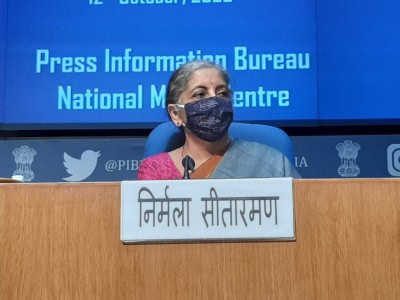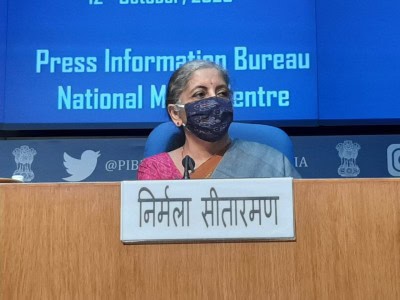 New Delhi, Oct 13 : In the case of LTC scheme announced by Finance Minister Nirmala Sitharaman, it is doubtful how many will avail this scheme if the person availing this also has to pay GST amount out of his/her pocket then it will be a burden on the person and in fact he would be better off paying taxes on the amount availed by him, a research by State Bank of India said.
New Delhi, Oct 13 : In the case of LTC scheme announced by Finance Minister Nirmala Sitharaman, it is doubtful how many will avail this scheme if the person availing this also has to pay GST amount out of his/her pocket then it will be a burden on the person and in fact he would be better off paying taxes on the amount availed by him, a research by State Bank of India said.
After a long clamour for fiscal stimulus the Government came up with measures with direct fiscal support to people and states and to generate demand. However, the announcements have come with a “conditions apply” tag.
“In the case of LTC scheme, it is doubtful how many will avail this scheme as if the person availing this also has to pay GST amount out of his/her pocket then it will be a burden on the person and in fact he would be better off paying taxes on the amount availed by him,” SBI said.
“The scheme is unlikely to work unless the Government decides to pay GST component also over and above the fare entitlement amount as is done by many PSBs. Further since LTC covers not just the employee but the dependent family members, the draw down on the personal income will be huge,” it said.
For instance for employee eligible for business travel get two way fair value of Rs 36,000. For a family of four this works out to Rs 1.44 lakh. The total expenditure works out to Rs 4.32 lakh plus GST amount of Rs 1.03 lakh.
The festival advance scheme is akin to the interest free advance provided to certain public sector bank employees, in which they receive one month’s salary which is repaid in 12 interest free instalments.
“Out of the two schemes, it is only in case of the festival advance proposal that one can think there is some additional income over and above the current income. This is where one can expect demand will get a boost by way of discretionary consumption,” SBI said.
However, the consumption boosting proposal ignores the vital fact that rise in savings is due to curtailment of discretionary consumption in higher fractile groups. The fractile group that is targeted under proposal have higher marginal propensity to save and any additional savings is more likely to be not consumed, it added.
“We believe only around 10-15 per cent employees would use the LTC Scheme,” SBI said. In case of festival advance assuming it is taken in November and since it is returned in maximum of 10 instalments, 4 instalments will be paid back in this fiscal, thus leaving a burden of Rs 2,400 crore to the exchequer.
Further capital expenditure will lead to Rs 25,000 crore cash outgo for Centre’s budget allocation and Rs 12,000 crore loan for States.
Taking all these into account, Rs 40,000 crore is the maximum additional cash outgo of the Centre during the current fiscal, which is around 0.21 per cent of GDP. The last stimulus package had a cash outgo of Rs 2 lakh crore or around 1 per cent of GDP.
“Let us hope these new measures are not a case of too little too late,” it added. However, on a positive note, power demand across major states continue to increase, implying economic recovery. Economic activity as revealed by our business activity index also shows improving momentum since August. The moot question is sustainability, it added.
Disclaimer: This story is auto-generated from IANS service.

